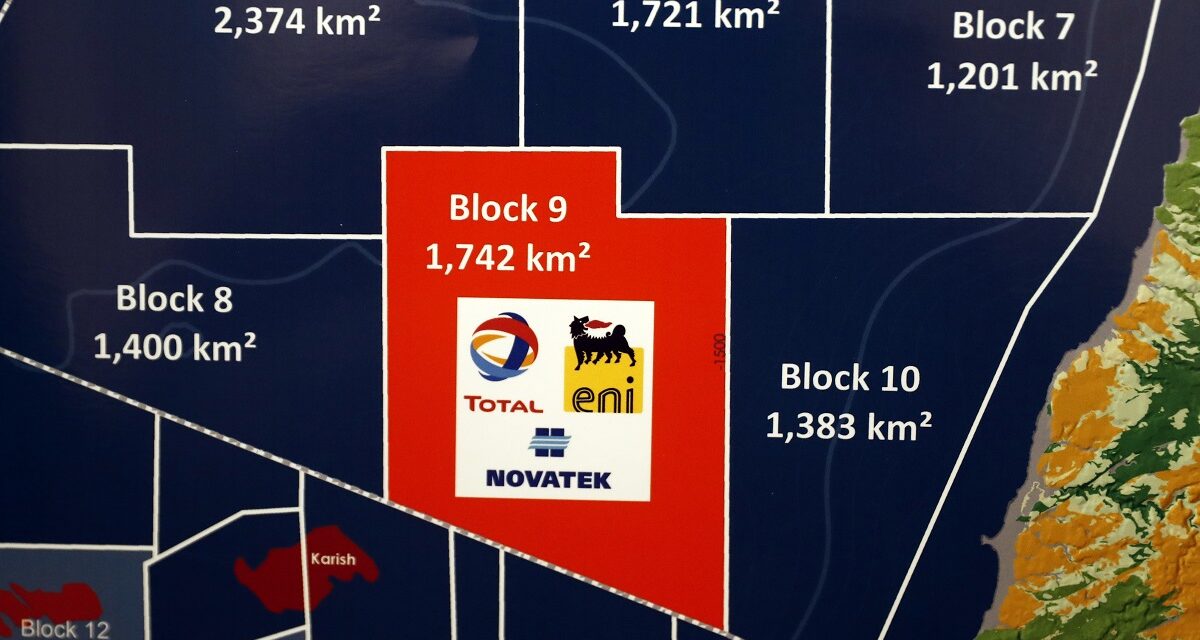Russia’s firm Novatek gas exploration firm has decided to give up its part in a consortium to drill for natural gas near the disputed maritime border between Lebanon and Israel.
The company, citing “economic and financial” reasons as well as “political risks,” said its withdrawal from the consortium takes effect on October 22.
The consortium, which includes the French giant Total and the Italian ENI energy firm, won the first-ever licenses in 2018 for an initial round of offshore hydrocarbon exploration and exploitation, according to L’Orient Today.
The licenses cover Blocks 4 and 9 in the offshore Lebanese exclusive economic zone (EEZ).
Thus far, drilling has only been carried out in Block 4, with no significant resources discovered.
Note that Block 9 is the focus of the current dispute between Lebanon and Israel over their mutual maritime boundary, thus delaying any exploration in that area.
Natural gas extraction is expected to commence at Karish at the beginning of next month but many sources reported that the work will be delayed until October after tensions escalated in early June, when Israel moved a production vessel to the Karish offshore field, which is partly claimed by Lebanon. The move prompted Beirut to call for the resumption of US-mediated negotiations on the demarcation dispute while Hezbollah aired drone footage of Israeli ships in the disputed gas field.
Note that Lebanon and Israel have no diplomatic relations and are separated by a UN-patrolled border.
Because there must be at least three companies in a consortium for the signed exploration deal, the departure of Novatek could create legal problems for the remaining two members.
The future of a multi-company offshore gas exploration consortium remains unclear after Energy Minister Walid Fayad announced Wednesday that Russian gas company Novatek would be backing out of the group, citing “economic and financial” reasons as well as “political risks.”
Though the exploration deal still stands, Novatek’s departure raises legal questions. Laury Haytayan, a Lebanese oil and gas expert, told L’Orient Today that “all provisions, whether the law, the signed decrees, or the signed exploration deal, say that there have to be at least three companies in the consortium,” adding that authorities would have to replace Novatek with another company if they are not planning on devising a new legal opinion on the matter.
The Energy Minister did not respond to requests for comment by the time of publication.
Haytayan added that authorities have not been clear on what procedures they will take concerning replacing Novatek: “Would Total and ENI decide on a third company which the government would then approve, or are they going to repeat the bidding process to find a third company?”
After years of delaying the matter, the companies’ contracts were signed with great fanfare in early 2018, but only one exploration well has been drilled to date — block four — with no significant hydrocarbon reserves found. The other well — block nine — has meanwhile been at the center of a maritime border dispute between Lebanon and Israel.
The dispute has obstructed energy exploration in the eastern Mediterranean and risks exacerbating tensions between two foes.
The Energy Ministry stated on Wednesday that Total and ENI have reassured their commitment to their gas exploration contract while Novatek’s withdrawal will be effective starting Oct. 22.
The Energy Ministry had announced on June 15 that it would extend the deadline by which energy companies can apply for pre-licenses to explore Lebanon’s offshore territory in search of potential hydrocarbon deposits until Dec. 15, 2022. The ministry’s previous deadline for applying for pre-licenses had expired in June.
The June statement, the Energy Ministry said that the decision came in response to a recommendation made by the government’s Lebanese Petroleum Administration, “to allow additional companies which do not already work on Lebanese offshore [areas] to prepare their files and participate in the coming [pre-licensing] round which opens space for an acceptable level of competition between international oil and gas companies.”
Source: L’Orient Today & LGOMP







